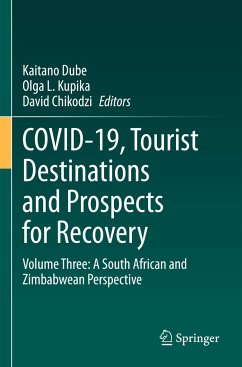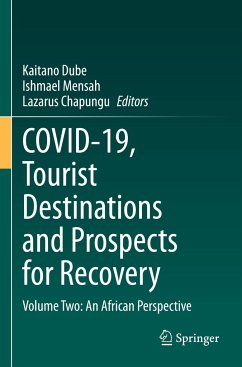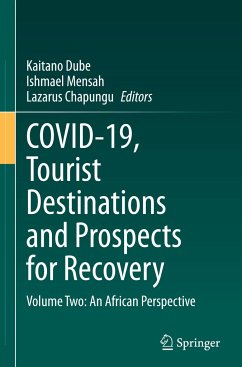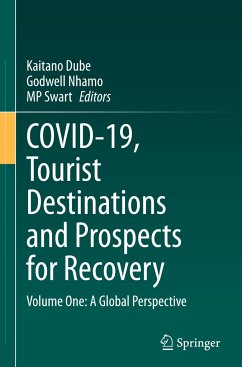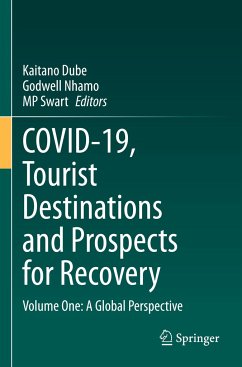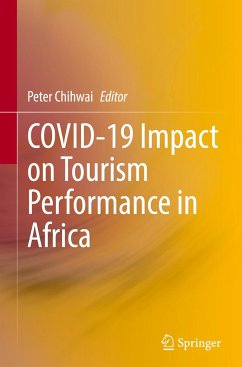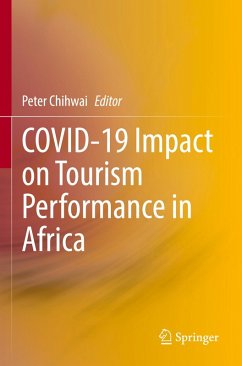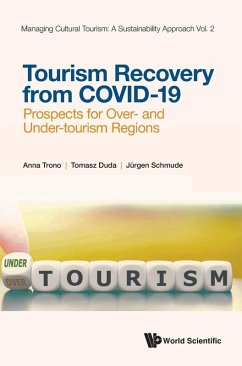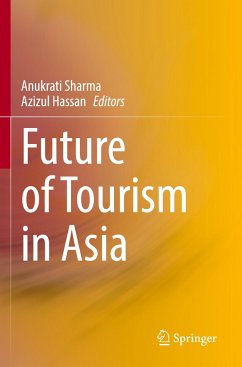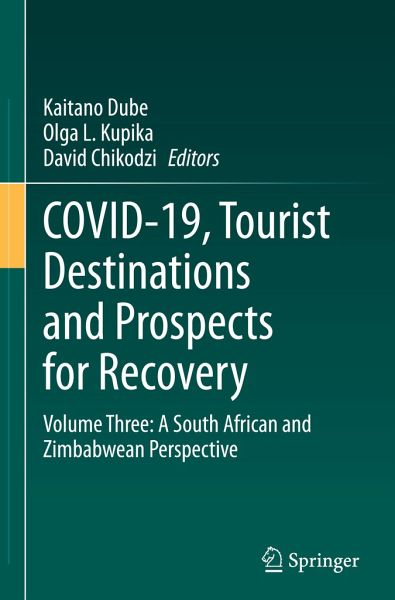
COVID-19, Tourist Destinations and Prospects for Recovery
Volume Three: A South African and Zimbabwean Perspective
Herausgegeben: Dube, Kaitano; Kupika, Olga L.; Chikodzi, David

PAYBACK Punkte
65 °P sammeln!
There has been a segmented approach to documenting the impact of COVID-19 and recovery prospects for global tourism destinations. Until this volume, though, there has not been comprehensive, concentrated efforts to take a deep-dive look into two countries' tourism destinations in order to provide a comparative perspective. This book fills this gap by analyzing tourism impacts and recovery prospects in both Zimbabwe and South Africa. The volume opens with an introductory chapter from the editors that provide context and background. Part I of the volume looks at the impacts of COVID-19 on Zimbab...
There has been a segmented approach to documenting the impact of COVID-19 and recovery prospects for global tourism destinations. Until this volume, though, there has not been comprehensive, concentrated efforts to take a deep-dive look into two countries' tourism destinations in order to provide a comparative perspective. This book fills this gap by analyzing tourism impacts and recovery prospects in both Zimbabwe and South Africa. The volume opens with an introductory chapter from the editors that provide context and background. Part I of the volume looks at the impacts of COVID-19 on Zimbabwe and South Africa, Part II focuses on tourism operations during the pandemic, and Part III focuses on tourism recovery initiatives and prospects. The concluding chapter from the editors provides practical and policy implementation. This book is the third and final component of a three-volume set on the impact of COVID-19 on destination tourism around the world.





